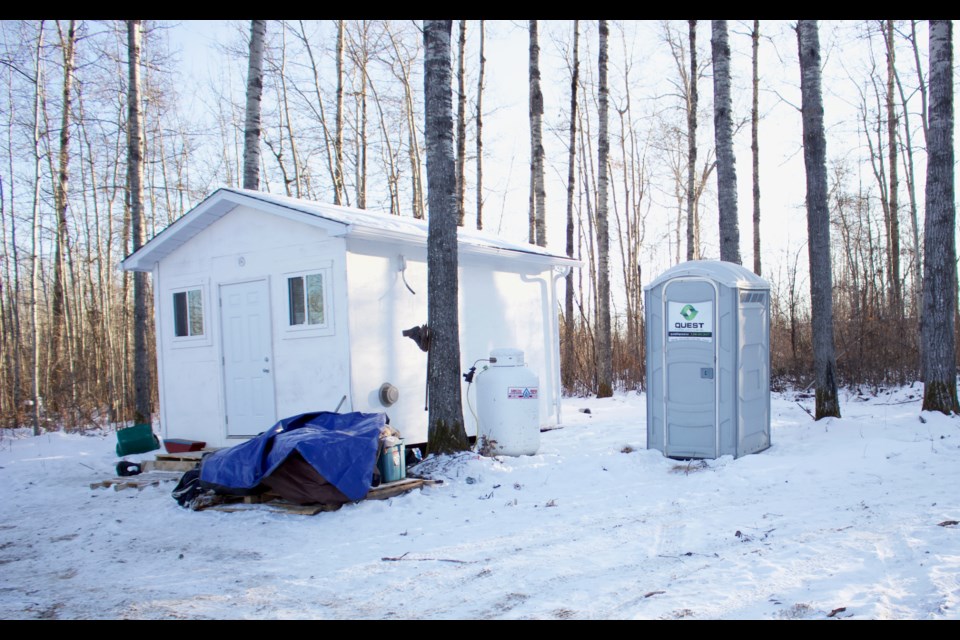LAC LA BICHE - In an effort to raise awareness about housing insecurity and homelessness, the Rural Development Network (RDN) and Lac Biche County’s Family and Community Support Services (FCSS) are teaming up to host community engagement sessions.
By creating an opportunity to share pathways to a housing-first approach while hearing local residents' thoughts, the group’s aim is to not only build community partners but table difficult conversations, said Linda Bernicki, Director of Health & Wellness and Indigenous Engagement at RDN.
“Homelessness is a very sensitive issue and very diverse. There is a lot of information and misinformation not in just Lac La Biche, but in society and across Canada as a whole about homelessness, people that are homeless or at risk of becoming homeless.”
Bernicki added, “It’s important to be able to engage with people and have conversations and learn together about what homelessness is, what poverty is, what housing insecurity is like. And then come together and talk about what are some solutions.”
The RDN is a national organization that started in Alberta. Today, the group is aiming to provide sustainable solutions not only for housing insecurities but also identify service gaps for social issues in rural communities, nationwide.
With the housing first approach, a collaborative effort between RDN and FCSS has been ongoing for a number of years now, says Bernicki. This includes working on research and defining what the housing insecurity crisis looks like locally, while providing programs that can lead to supporting vulnerable populations for years to come.
Current projects
Earlier this year, the RDN secured $150,000 of grant funding to support Lac La Biche’s Transitional Housing Task Force Project to cover a portion of the costs required to renovate and retrofit four portable units into a four-stage program for healing, said Anita Polturak, manager of FCSS and a task force partner.
The portable units will eventually serve as a detoxification, rehabilitation and support centres for houseless individuals moving through different stages of recovery. Polturak says the four-stage program is only one part of the challenges surrounding housing instability that they plan to find solutions for.
“We also have people that aren’t visible. We have youth that are couch surfing,” she says. This includes individuals who are one step away from losing their homes from payment issues or job loss.
Considering the wide variety of housing insecurity that exists, having community engagements is part of creating “long term solutions” to start supporting not only the most visible populations that utilize shelters, but for all individuals in need of housing stability, said Polturak.
“There can be all kinds of reasons for people not being in stable housing. This is part of a long-term view to stabilizing housing for people in the community and this is the place to start because people with no homes right now are the most visible and most imminent population that we want to work with and grow the work to make sure everyone has a safe home.”
Community learning
Over half a dozen engagement sessions will be scheduled to collaborate with residents who are a part of the community, not only to share the progress of future projects but to have residents understand the issues, said Bernicki.
Ultimately, she says trauma is a factor that has its own unique set of challenges, especially for people facing housing instability and for individuals who are working through a crisis. With community engagement sessions, they hope to share the message and support people, she said.
“What we really want to highlight is housing is a human right, which is just as essential as food and water… which every individual should have access to, not only in Lac La Biche but across the country, "said Bernicki.
Finding solutions for people who experience homelessness and are going through a housing crisis benefits the community as a whole, said Polturak.
“When you have a home, you then can go out into the world and be an active member of society,” she explained. “So many of these people are long-time residents of Lac La Biche and if they’re not, they have family ties here.”
Event details
To register for the upcoming sessions, contact Lauren Kehoe at 780-623-6361 or by email at [email protected]
An upcoming virtual engagement session is scheduled on April 27 from 11:45 a.m. to 12:30 p.m. with three in-person sessions to follow in May.
Currently, the group has a short online survey available for feedback.
For more information, visit www.ruraldevelopment.ca or contact Lac La Biche County’s FCSS department.


